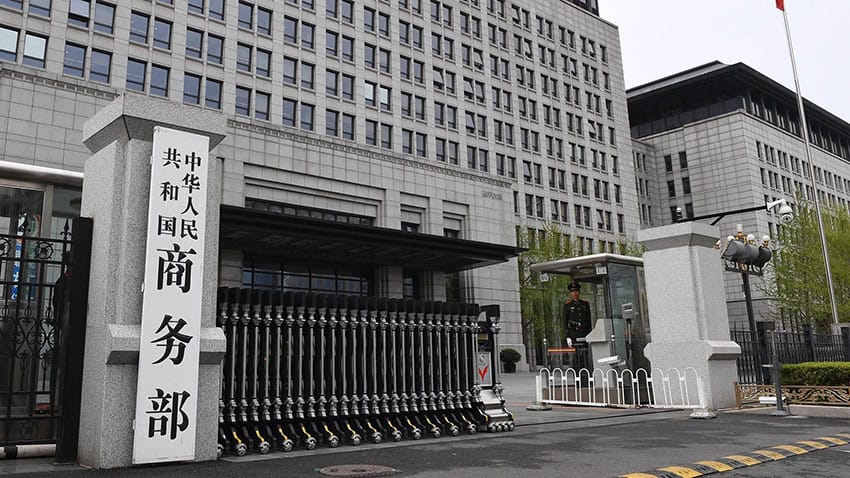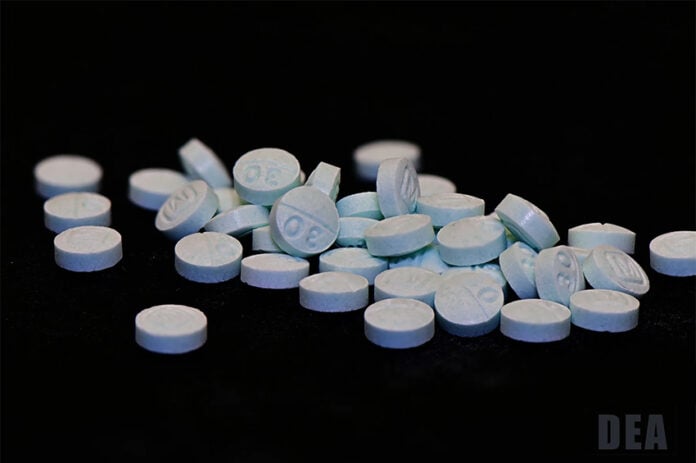The Chinese government has taken a significant step toward curbing the flow of fentanyl precursor chemicals between China and North America, announcing that export licenses are now required to export 13 “drug-making” chemicals to Mexico, the United States and Canada.
China’s Ministry of Commerce and four other government departments announced the new rule on Monday and it took effect immediately.

The announcement and implementation of the rule came 11 days after U.S. President Donald Trump and Chinese President Xi Jinping held talks in South Korea.
After that meeting, the White House said in a statement that China would take “significant measures to end the flow of fentanyl to the United States.”
“Specifically, China will stop the shipment of certain designated chemicals to North America and strictly control exports of certain other chemicals to all destinations in the world,” the statement said.
Chemicals made in China that can be used to manufacture fentanyl enter Mexico legally and illegally via ports on the Pacific coast.
Mexican criminal organizations use those chemicals to make fentanyl in various forms, including pills. Much of the fentanyl they make is shipped to the United States, where the powerful synthetic opioid has fueled an overdose crisis.
The Trump administration has been pressuring Mexico to do more to stem the flow of fentanyl to the U.S., including by imposing a 25% tariff on Mexican goods that don’t comply with the USMCA free trade pact.
Patel takes partial credit for China’s decision
On Wednesday, the director of the U.S. Federal Bureau of Investigation (FBI), Kash Patel, told a press conference that “the People’s Republic of China has fully designated and listed all 13 precursors utilized to make fentanyl.”
“Furthermore, they have agreed to control seven chemical subsidiaries that are also utilized to produce this lethal drug,” he said.
Patel asserted that China’s decision was a product of his visit to Beijing as well as Trump’s “leadership and direct engagement with China.”
He said his visit to China “was only possible due to President Trump’s historic engagement with President Xi” in South Korea.
“… Fentanyl precursors are what makes up fentanyl. While we … have been fighting hard to seize and stop drug traffickers, we must attack fentanyl precursors, the ingredients necessary to make this lethal drug,” Patel said.
“That was the sole purpose of my trip to China — to eliminate these precursors, and if successful we would suffocate the drug trafficking organizations’ ability to manufacture fentanyl in places like Mexico,” he said.
Patel said that his recent trip “was the first time an FBI director has been to China in over a decade,” and highlighted that he received an “audience with his counterpart” to directly address the issue of fentanyl precursors and their shipment to North America.
“And again thanks to President Trump’s direct engagement with President Xi, the government of China committed fully to my engagement there on the ground in Beijing. … The Chinese government agreed on a plan to stop fentanyl precursors,” he said.
AMLO also lobbied China on fentanyl
In April 2023, Mexico’s then President Andrés Manuel López Obrador revealed that he had written to President Xi to seek his support in the fight against fentanyl.
“We turn to you, President Xi Jinping, to ask you for humanitarian reasons to help us control the shipments of fentanyl that may be sent from China to our country,” he wrote.
China responds to AMLO denying ‘illegal trafficking of fentanyl’
A Chinese Foreign Ministry spokesperson subsequently asserted that “there is no such thing as illegal trafficking of fentanyl between China and Mexico.”
However, later in 2023, Mexico and China formed a “Working Group on Chemical Precursors,” and the two countries “agreed on the importance of continuing to cooperate to combat the illicit trafficking of drugs and precursor chemicals,” according to Mexico’s Foreign Affairs Ministry.
In November 2023, López Obrador met with Xi during the APEC Summit in San Francisco, where he emphasized “the importance of reaching an agreement to exchange information on [precursor chemical] shipments leaving Asia.”
The Mexican government also said that Xi “welcomed the recent creation of the Mexico-China Working Group on Precursor Chemicals.”
President Claudia Sheinbaum met with Xi during the G20 Summit in Brazil last November, but there was no indication that the two leaders spoke about fentanyl and the precursor chemicals used to manufacture the drug.
